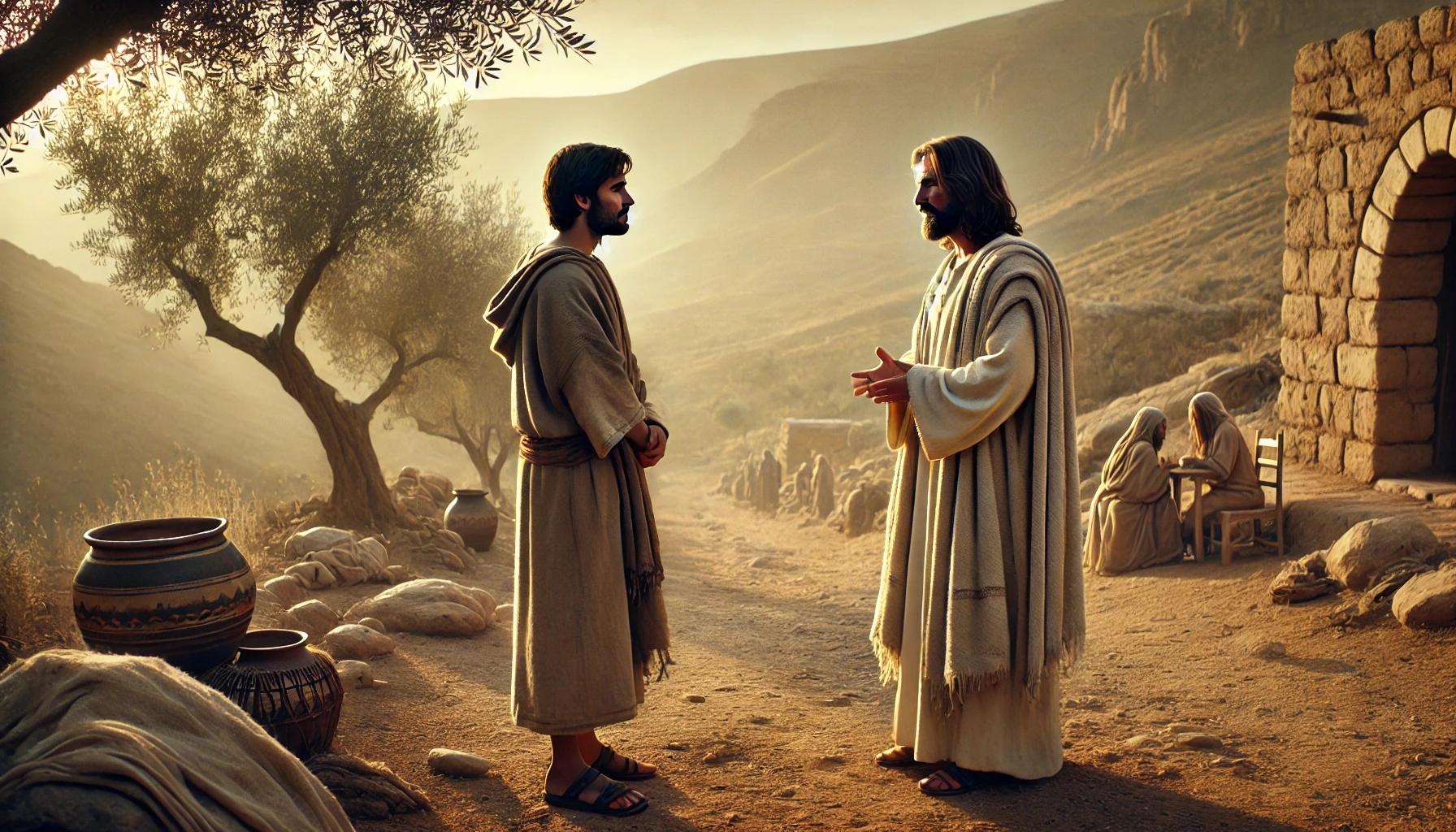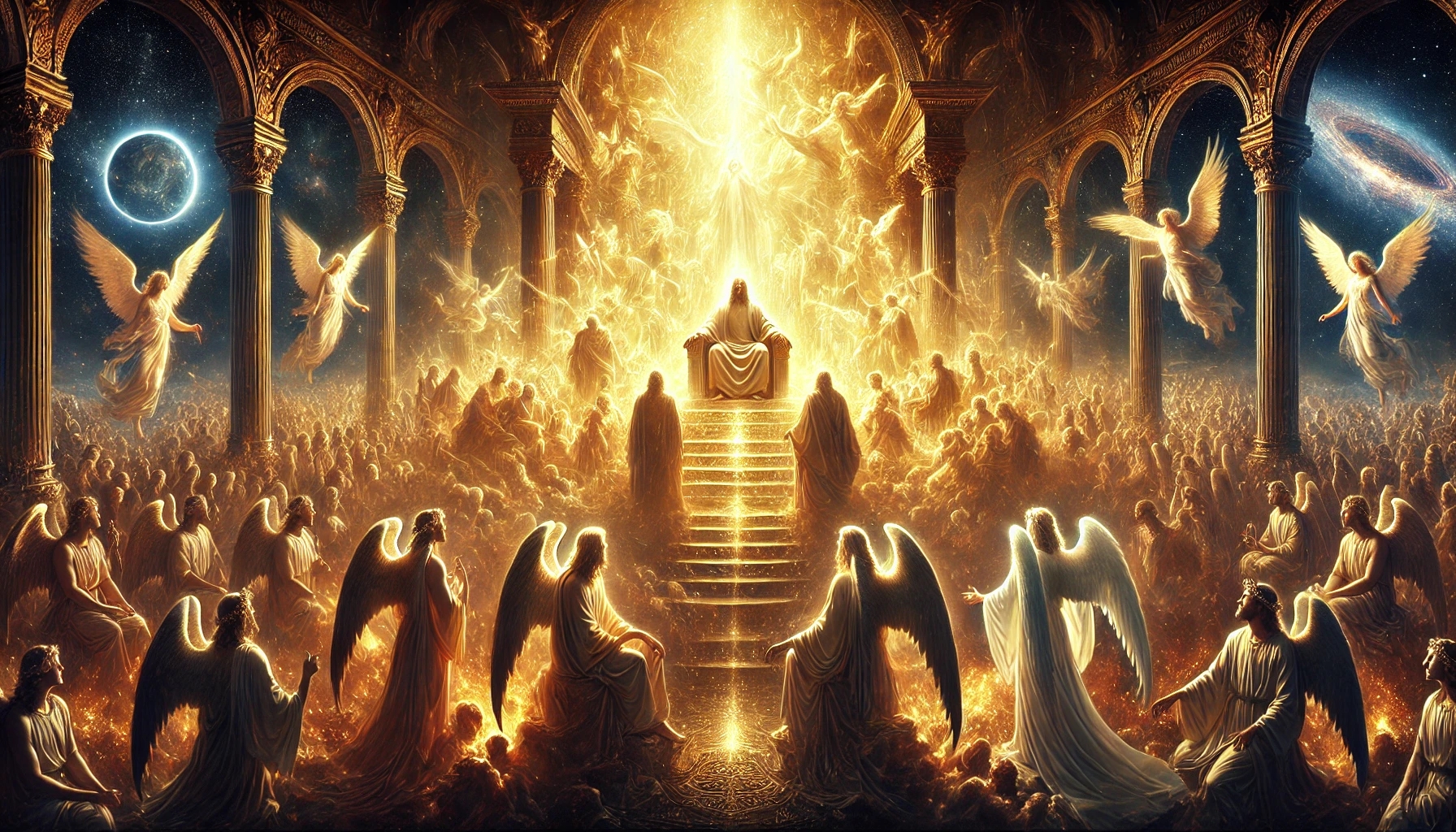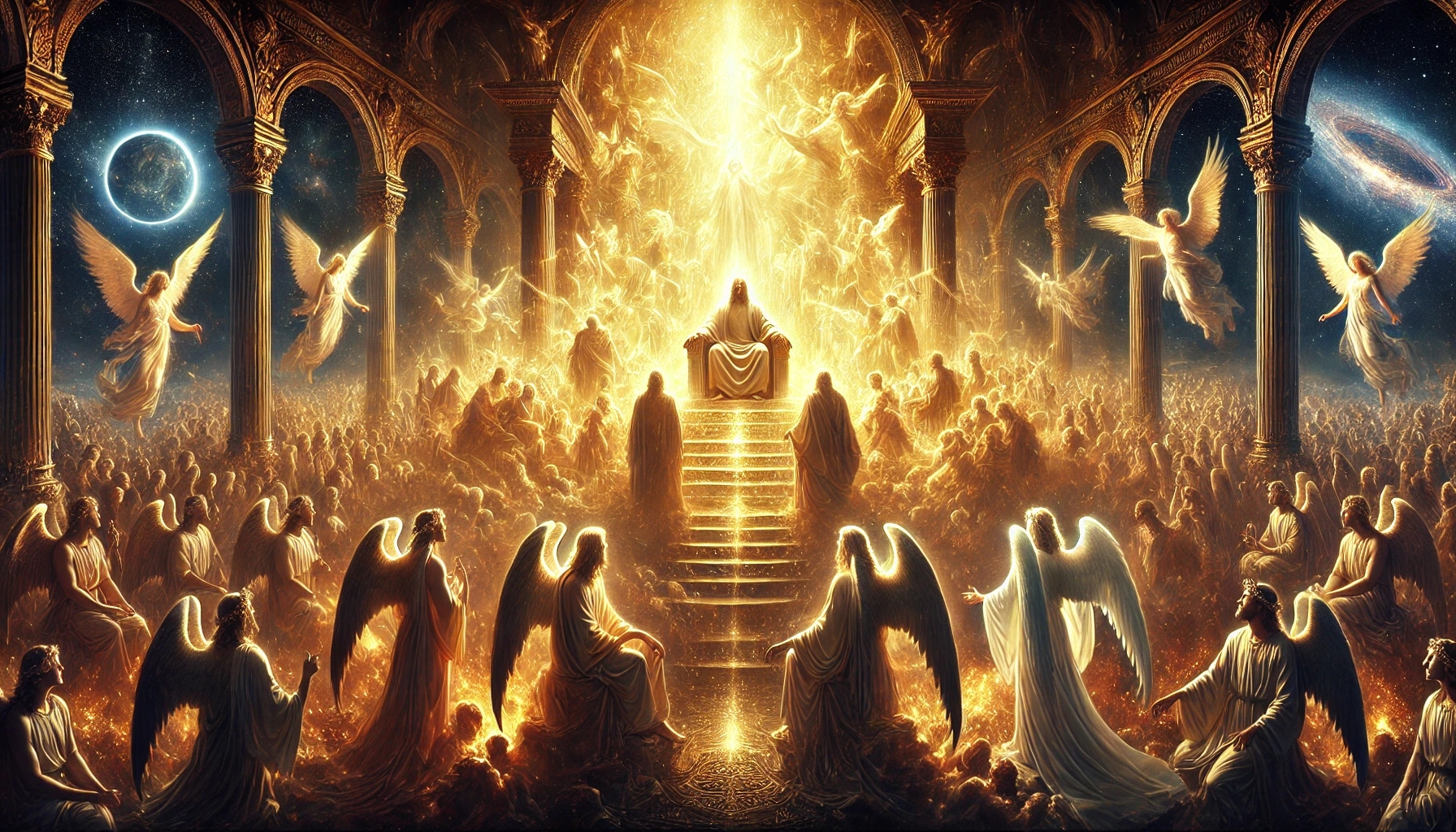 Series: ALLUSIONS, IMAGES, SYMBOLS
Series: ALLUSIONS, IMAGES, SYMBOLS
 With Pastor Mark Finley
With Pastor Mark Finley
Lesson 5:  The Nations, Part 2
The Nations, Part 2
 God’s Sovereignty over the Kingdoms of the Earth
God’s Sovereignty over the Kingdoms of the Earth
 Introduction
Introduction
The history of the world is not a chaotic game of powers – it is the stage on which God’s eternal plan unfolds. In this lesson, we see how human kingdoms fade away, while God’s kingdom stands on an everlasting foundation. From the fall of Babylon to the emergence of God’s final people, prophecy shows us that God’s will prevails despite turmoil and upheavals. Trusting in His Word, we discover hope beyond all uncertainties.
 Memory Text:
Memory Text:
“Be still, and know that I am God; I will be exalted among the nations, I will be exalted in the earth!”
— Psalm 46:10
 Content:
Content:
 5.1 The Very First Commandment
5.1 The Very First Commandment
 Humanity’s First Test of Obedience
Humanity’s First Test of Obedience
In the Garden of Eden, God not only granted freedom but also set a clear boundary – out of love. The command not to eat from the Tree of Knowledge was meant to protect, not restrict. Even today, we face decisions about whom we listen to in the “garden” of our lives.
 5.2 Daniel 2
5.2 Daniel 2
 From Gold to Ashes—God’s Kingdom Endures
From Gold to Ashes—God’s Kingdom Endures
The statue made of gold, silver, bronze, and iron reveals the decline of human kingdoms. Despite all human achievements, the world remains filled with conflict. Yet at the end stands the “stone cut without hands” — a symbol of God’s eternal kingdom — replacing all earthly powers.
 5.3 Daniel 7
5.3 Daniel 7
 Tumultuous Seas and the Unshakable Kingdom of God
Tumultuous Seas and the Unshakable Kingdom of God
Monstrous beasts rise from stormy waters — a vivid image of human violence and chaos. In the midst of it all, God calls us to hope in His eternal, just kingdom rather than earthly rulers.
 5.4 Between Land and Sea
5.4 Between Land and Sea
 Land of Hope, Sea of Turmoil
Land of Hope, Sea of Turmoil
Land symbolizes divine stability, while the sea represents human unrest. In Revelation 12–13, we see God’s people finding refuge — yet prophecy warns: even apparent havens can change. Only those who trust in God remain truly secure.
 5.5 Prophesy Again
5.5 Prophesy Again
 The Final Message to a Dying World
The Final Message to a Dying World
The remnant church receives the call to “prophesy again,” warning the world and preparing it for Christ’s soon-coming kingdom. Both land and sea will bear witness that God’s light pierces the darkness.
 5.6 Summary
5.6 Summary
 God’s Plan Amid the Kingdoms of This World
God’s Plan Amid the Kingdoms of This World
From Eden to the end times, prophecy shows us: human kingdoms falter, but God’s plan stands firm. Rather than relying on earthly securities, God calls us to be bold, faithful witnesses of His coming kingdom — full of courage and hope.


 Lesson 4 – The Nations, Part 1
Lesson 4 – The Nations, Part 1 Introduction
Introduction Bible Study
Bible Study Nebuchadnezzar’s Humbling and Recognition (Daniel 4)
Nebuchadnezzar’s Humbling and Recognition (Daniel 4) Reflection Questions & Answers
Reflection Questions & Answers Spiritual Principles
Spiritual Principles Practical Application
Practical Application Conclusion
Conclusion Thought of the Day
Thought of the Day Illustration – “Light Over Babylon”
Illustration – “Light Over Babylon” April 26, 2025
April 26, 2025 DAILY BIBLE READING
DAILY BIBLE READING Genesis 10 – The Table of Nations: Noah’s Descendants and the Spread of the Peoples
Genesis 10 – The Table of Nations: Noah’s Descendants and the Spread of the Peoples Bible Text – Genesis 10 (King James Version)
Bible Text – Genesis 10 (King James Version) Explanation & Context
Explanation & Context Introduction
Introduction Commentary:
Commentary: Summary:
Summary: Message for Us Today
Message for Us Today Every person is part of a grand story that begins with Noah.
Every person is part of a grand story that begins with Noah. God sees not only the individual but also nations, languages, and cultures—and He blesses diversity.
God sees not only the individual but also nations, languages, and cultures—and He blesses diversity. Despite scattering and differences, God’s plan endures: humanity is to multiply, live in justice, and give glory to God.
Despite scattering and differences, God’s plan endures: humanity is to multiply, live in justice, and give glory to God. Let this remind you: even if you’re “just” a name on a list, you’re woven into God’s plan. He knows your place in His story.
Let this remind you: even if you’re “just” a name on a list, you’re woven into God’s plan. He knows your place in His story. “These are the families of the sons of Noah, according to their generations, in their nations: and by these were the nations divided in the earth after the flood.” (Genesis 10:32)
“These are the families of the sons of Noah, according to their generations, in their nations: and by these were the nations divided in the earth after the flood.” (Genesis 10:32) God brings order out of chaos. Let Him draw the lines in your life, too.
God brings order out of chaos. Let Him draw the lines in your life, too.
 April 20-26, 2025
April 20-26, 2025 1. God’s Nature: Love as the Foundation of the Universe
1. God’s Nature: Love as the Foundation of the Universe What does this mean for you?
What does this mean for you? Choose obedience from love, not compulsion.
Choose obedience from love, not compulsion. Be watchful – Satan still uses half-truths and pride to deceive.
Be watchful – Satan still uses half-truths and pride to deceive. Turn to God while the door of grace is still open.
Turn to God while the door of grace is still open.

 Lesson 4 – The Nations, Part 1
Lesson 4 – The Nations, Part 1 Introduction – Between Kingdoms and Divine Calling
Introduction – Between Kingdoms and Divine Calling Bible Study – A Journey Through the Nations’ Story
Bible Study – A Journey Through the Nations’ Story Spiritual Principles
Spiritual Principles Daily Application
Daily Application Conclusion
Conclusion Thought of the Day
Thought of the Day Illustration – “The Other Light”
Illustration – “The Other Light” DAILY BIBLE READING
DAILY BIBLE READING April 25, 2025
April 25, 2025 Daily Chapter: Genesis 9
Daily Chapter: Genesis 9 Explanation & Context
Explanation & Context Introduction
Introduction Commentary
Commentary 1. New Rules for Life (Verses 1–7)
1. New Rules for Life (Verses 1–7) Summary
Summary Message for Today
Message for Today God does not forget His covenant. When we see the rainbow, we remember: God’s faithfulness is firm.
God does not forget His covenant. When we see the rainbow, we remember: God’s faithfulness is firm. The rainbow is God’s sign of hope, patience, and renewal. Still today.
The rainbow is God’s sign of hope, patience, and renewal. Still today.
 WEEKLY SPIRIT OF PROPHECY READING
WEEKLY SPIRIT OF PROPHECY READING Why was Sin Permitted?
Why was Sin Permitted? Today we are also caught in the midst of the Great Controversy.
Today we are also caught in the midst of the Great Controversy. What does this mean for you?
What does this mean for you? Trust God’s character, even when you don’t understand everything.
Trust God’s character, even when you don’t understand everything. Choose obedience from love, not compulsion.
Choose obedience from love, not compulsion. Be watchful – Satan still uses half-truths and pride to deceive.
Be watchful – Satan still uses half-truths and pride to deceive. Turn to God while the door of grace is still open.
Turn to God while the door of grace is still open.